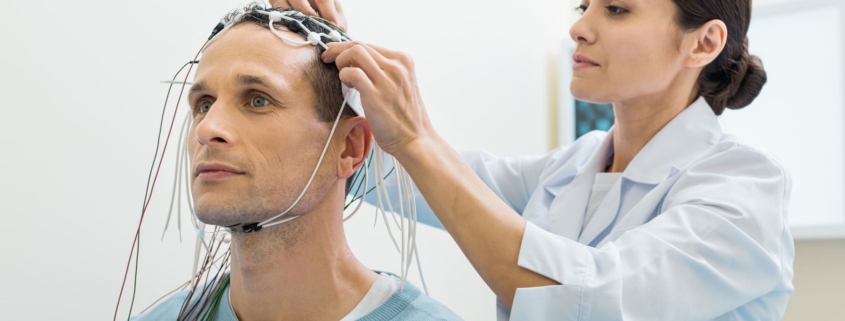Should You See a Neurologist After an Auto Accident?
The impact of a car accident goes far beyond broken bones and cuts. The damage a victim sustains in a car crash can follow them for the rest of their lives, particularly if they suffer a neurological injury. If you get hit by a car, neurological damage may be the last thing on your mind. However, seeing a neurologist could help you catch a traumatic brain injury early and get the treatment you need.
Learn more about the benefits of seeking neurological treatment after a car accident. When you’re ready to move forward with your personal injury case, call Burns, Cunningham & Mackey at 800-574-4332.
Symptoms of Neurological Injuries
If you’re wondering whether or not neurological care is your next step after a car accident, get familiar with common symptoms of neurological injuries. This can help you be on the lookout for red flags and get the treatment you need right away. Some symptoms that may indicate a brain injury include:
- Slurring of the speech or speech that makes no sense
- Ringing in the ears
- Nausea and vomiting
- Pain and soreness in the back and neck
- Tingling or numb feeling in the extremities
- Hypersensitivity to the sun and other light sources
- Headaches
- Irritability
- Anxiety
- Unexplainable mood changes
- Odd or inappropriate behavior
- Forgetfulness
- Difficulty remembering or understanding new information
It’s important to note that neurological injuries do not just affect your cognition, as many people think. The brain controls every part of your body, so a neurological injury can impact your motor skills in many different ways.
Watch Out for Delayed Neurological Symptoms
After your accident, you may feel great. You might experience a little bit of soreness, but nothing you feel too concerned about. But in hours and days after your accident, the symptoms start piling up. You cry unexpectedly, struggle to remember coworkers’ names, and have to keep shaking your hands to keep them from tingling.
These could be delayed signs of a neurological injury. The body releases adrenaline during an accident to allow you to cope with the sudden stress, pain, and need to make quick decisions. But adrenaline doesn’t last forever. As it wears off, your body starts to absorb all of the damage it suffered in the collision, and you start feeling the true effects of the crash.
Even if you declined medical care at the scene of the accident, it’s important to seek neurological care after a crash if you start showing signs of a brain injury.
How Neurological Injuries Can Affect Your Life
Depending on the part of your brain that was affected by the crash, your life could change in many different ways. If there’s damage to the part of the brain that controls specific gross motor movements, you may struggle to walk, bear weight, or maintain your balance. This could leave you needing mobility devices and assistance. If you struggle with fine motor skills, you may find it challenging to write, type, use your phone, and cook.
Those with damage to the parts of the brain that control speech, memory, hearing, vision, communication, or decision-making may see their life change in myriad ways. Not only can these symptoms affect your ability to work and fulfill your financial obligations, but they could also have a negative effect on your personal life.
When a once-reliable friend starts lashing out at small offenses, forgetting important events, and acting strangely, they often find themselves invited to fewer and fewer outings. This type of injury can also strain your relationship with your family if they step up to care for you.
Why Prompt Treatment is Crucial
The good news is that neurological injuries aren’t always permanent. The brain has a high level of plasticity, which means it bends and forms to accommodate changes in its circumstances. When one part suffers devastating damage, the brain will do its best to rewire other parts of the brain to make up for the unexpected deficiency.
The brain’s plasticity is affected by a number of factors. One of those is the speed of treatment. The sooner you get checked out and diagnosed, the quicker you can begin treatment and give your brain a fighting shot at recovery.
Explore Your Legal Options with Burns, Cunningham & Mackey
If your injury is due to someone else’s negligence or malice, you may be entitled to compensation. Talking to a personal injury lawyer is the first step in this process. Call Burns, Cunningham & Mackey at 800-574-4332 or fill out our contact form to set aside some time to talk about your legal needs.













Leave a Reply
Want to join the discussion?Feel free to contribute!